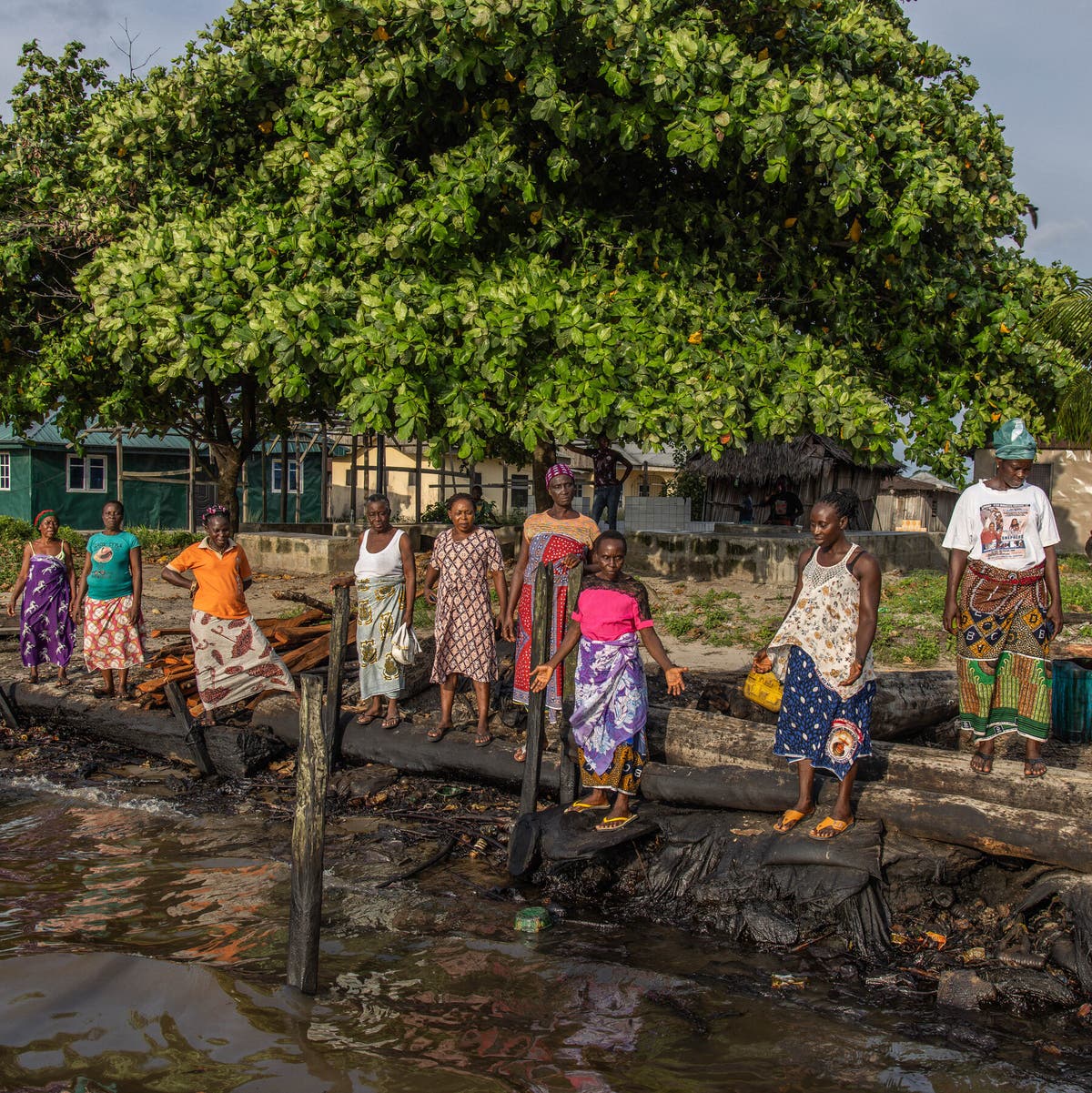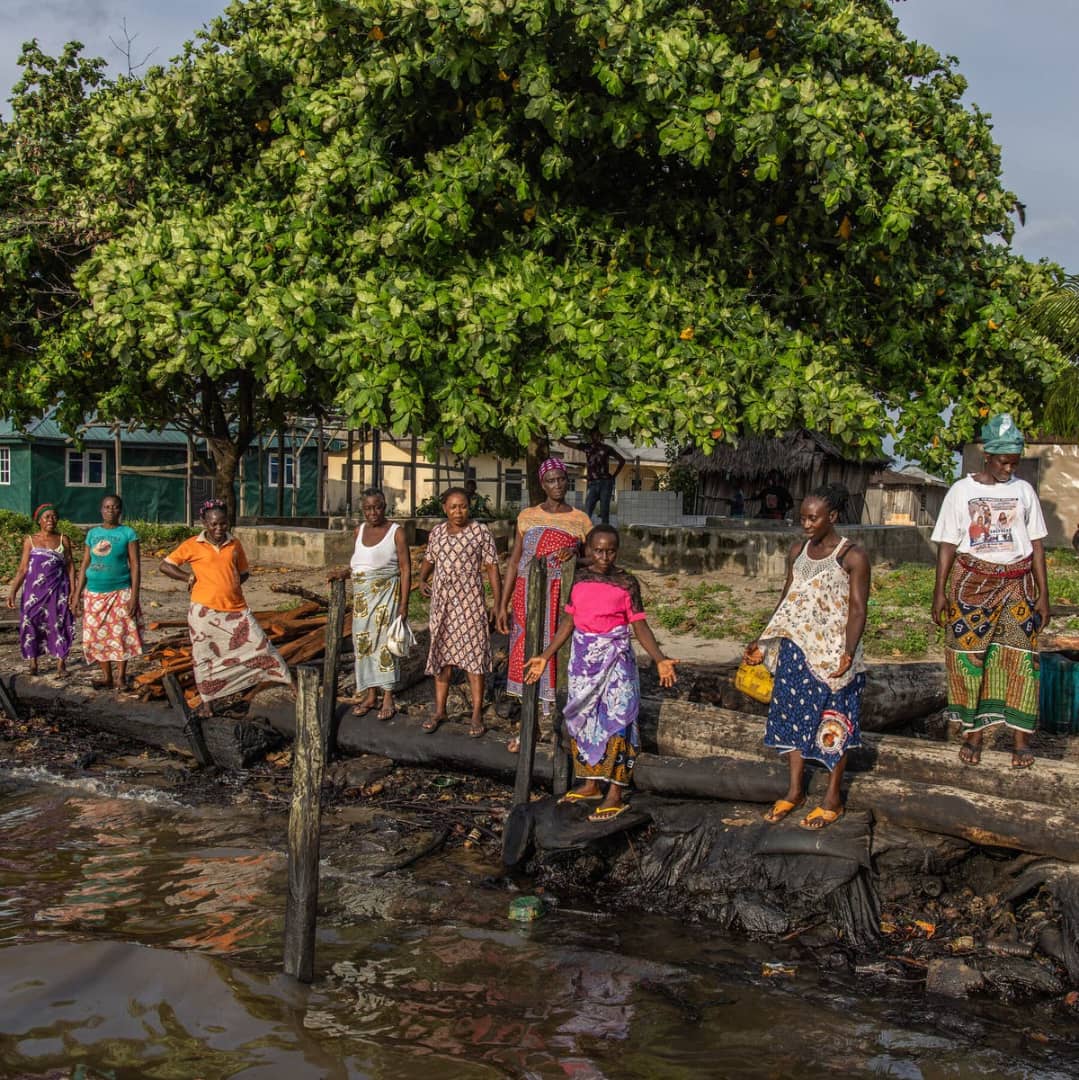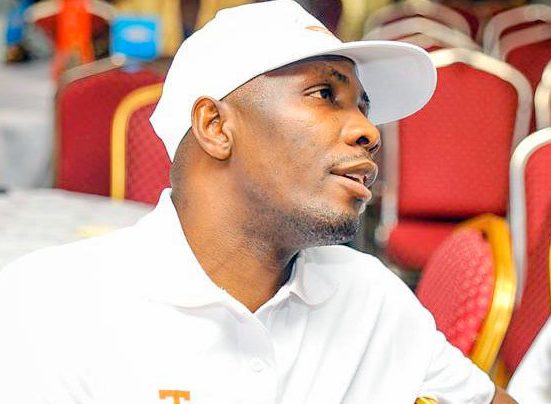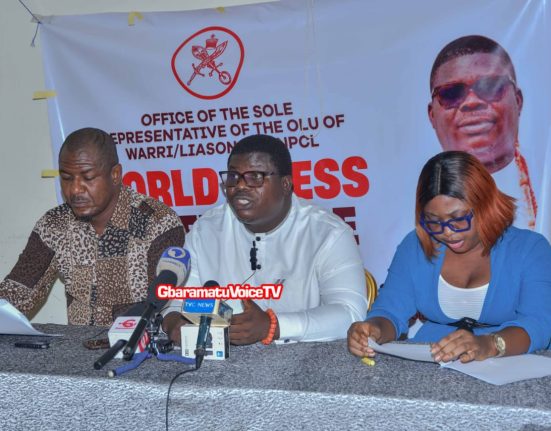Arise o compatriots!
By Osamamen Oba Eduviere
How long Oh Nigerian woman? How long will you sit in silence? This editorial opinion is written in commemoration of International Women’s Day, premised on climate change, adaptation, and mitigation of building a sustainable future.
The Niger Delta region with only 7.5 per cent of the Nigerian landmass has been a region bedeviled by incessant oil spillage with Rivers, Delta and Bayelsa States recording the highest numbers of oil spillage.
These spills have contaminated their water, air, and plants, rendering their farmlands desolate and their fishing occupation a thing of the past. Moreover, the availability of pipe-borne water is almost impossible in the region. Another pollution rendering havoc is the black soot associated with illegal gas flaring in the region. When inhaled through the nose or ingested through the skin or eyes, black soot could cause asthma, bronchitis, heart disease, and cancer.
The Niger Delta is Africa’s largest delta, covering about 70,000 square kilometres, and with about one-third of it made up of wetlands, and the third largest world mangrove forests. The Niger Delta is unique because it is the home of Nigeria’s oil industry, with its attendant environmental hazards such as water, land, air pollution, etc. Human activities and those of oil exploration and exploitation raise a number of issues such as depletion of biodiversity, coastal and river bank erosion, flooding, oil spillage, gas flaring, noise pollution, sewage and waste water pollution, land degradation and soil fertility loss, deforestation, which pose great challenges to women’s economic development of the Niger Delta.
ALSO READ: GbaramatuVoice to host Niger Delta Economic Discourse Series
I sit here at the Seaman’s building in the University of Iowa reminiscing on the lived experiences of the typical Niger Delta woman. A woman who, amid environmental degradation- oil spillage and soot, tries to find respite for herself, her spouse, offspring, and extended family. Her means of livelihood, fishing, and farming have been taken away from her. Unlike her male counterparts who could go to the cities (pick up motorcycle riding, bricklaying, car-washing businesses) to pursue a better source of income, she is stuck to the creeks, having to take care of children. Her hopes are dashed as she becomes economically handicapped.

The Nigerian government has only played lip service to these imminent issues in the region. It had promised to start with the Ogoni clean-up. Still, on December 2, 2021, the Federal Government through its Minister of Environment for State had pledged to address concerns raised by the Ogoni community on the Ogoni clean-up. This pledge is just one area in the Niger Delta. Many communities are left hanging with little or no promises from the government. However, it is insufficient to give assurances without any decisive actions taken. The Federal Government must “walk the talk”. This is a call to action!
The Deputy Secretary-General of the UN, Amina Mohammed, then just assuming office after her resignation as Nigeria’s Minister of Environment, in The Guardian of July 28, 2017 article, promised to “put the environment and the Ogoni-clean-up at the forefront of the International Organisation’s agenda. Our mission is peace and security of women, and this is the only solution that would take the country out of insecurity, violence, and conflicts.”
In recognition of International Women’s Day, therefore, I want to hold Amina Mohammed by her words, to implore for increased international collaboration with the Federal Government to stem the tide of environmental degradation. Finally, we can be bold to say that we are healthy citizens because we live in healthy environments.
The Niger Delta has become an ecological disaster zone, a place where rusty pipelines run through farms and in front of houses. Day and night huge gas fires rage in massive pits and towers, spewing noxious gases and filth into people’s homes and farms. Oil spills and fires are a regular occurrence, often causing the death of local people as well as the destruction of wildlife and property.
Michael Fleshman, of the New York-based Africa Fund, describing what he saw at the site of one oil spill, said: “The impact of the spill on the community has been devastating, as the oil has poisoned their water supply and fishing ponds, and is steadily killing the raffia palms that are the community’s economic mainstay. Lacking any other alternative, the people of the village have been forced to drink polluted water for over a year, and the community leaders told us that many people had become ill in recent months and that some had died.
“The sight that greeted us when we finally arrived at the spill was horrendous. A thick brownish film of crude oil stained the entire area, collecting in clumps along the shoreline and covering the surface of the still water. The humid air was thick with oil fumes.”
Often, the spillages lead to raging fires as in the case of the Jesse fire of October 17, 1998, when over a thousand people were killed and thousands more horrifically burned and left homeless. To date, not a single person has received compensation.
Indeed, in a region where medical care is scarce and only available to the rich, it is easy to envision the fate of these people. Ponds, creeks, rivers and land are soaked with thick layers of oil.
Terisa Turner, co-director of the United Nations NGO, International Oil Working Group (IOWG), describes one particular oil spill that she personally witnessed as follows: “150,000 residents of the community of Ogbodo battled a massive petroleum spill from a Shell pipeline, which burst on 24 June, churning crude into the surrounding waterways for 18 days until Shell clamped the pipe on 12 July. Severe environmental damage and threat to life is the outcome of Shell’s neglect.”
The Niger Delta generates nearly 80 per cent of Nigeria’s revenue, yet the majority of the population remains in poverty and the region has been affected by persistent violent conflict. Women are critical to the sustainable development efforts in the region, but their unique contributions to conflict prevention and local commerce are often unrecognised or unsupported.
The Niger Delta Partnership Initiative (NDPI) has been promoting gender equality in the Niger Delta region through it’s operations, programmes, and projects since its founding in 2010. Together with its implementing partner, the Foundation for Partnership Initiatives in the Niger Delta (PIND), the body places gender equality at the center of its efforts to promote peace and economic opportunity.
In situations of crises, women bear the brunt of the problems arising from such crises. Apart from this, they (women) constitute about 70 per cent of those who are poor in the world, in the developing world they are the poorest. In the Niger Delta, the situation is not different, as the women suffer both the confiscation of their agricultural land by the government and multinationals on the one hand, and rape and other assault by oil workers and soldiers on the other hand. They are also denied access to the oil wealth as well as remain the most vulnerable group to production of oil that has caused an environmental crisis.
Eduviere is a PhD student and teaching assistant at the Department of Religious Studies, University of Iowa.
Support Quality Journalism in the Niger Delta Region
Join us in our mission to bring development journalism, cultural preservation, and environmental awareness to the forefront. Your contribution makes a difference in the lives of the people of the Niger Delta. Donate today and be a part of the change!









